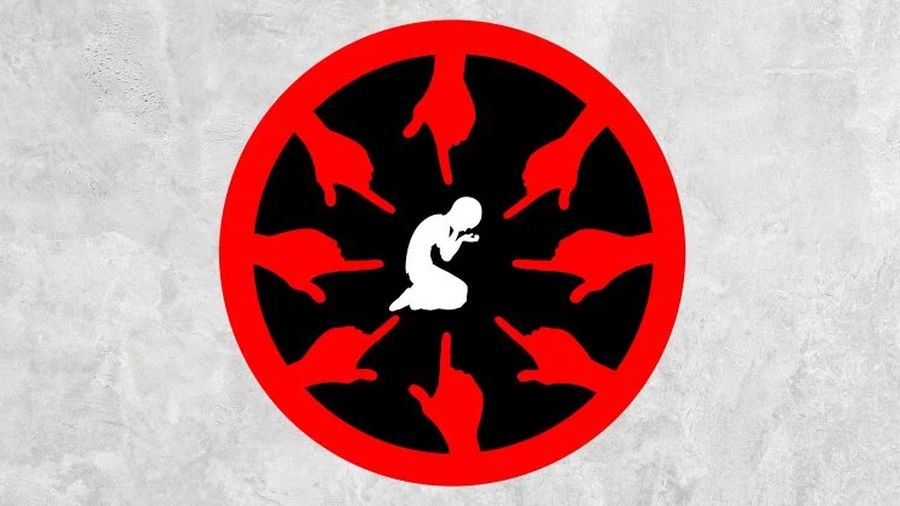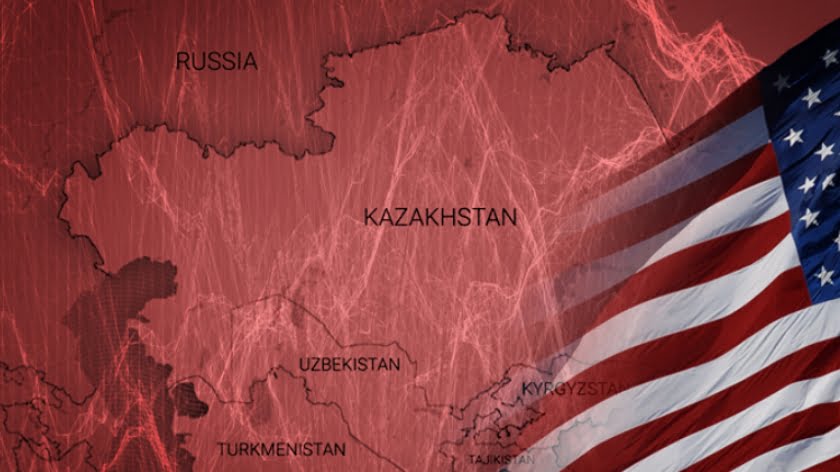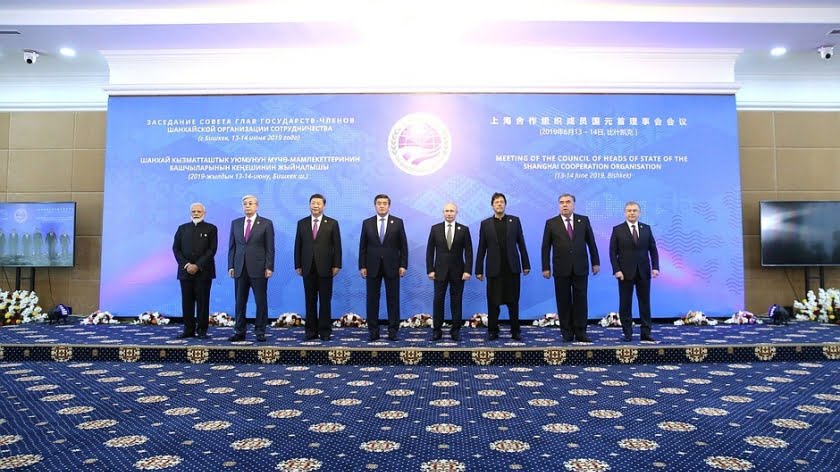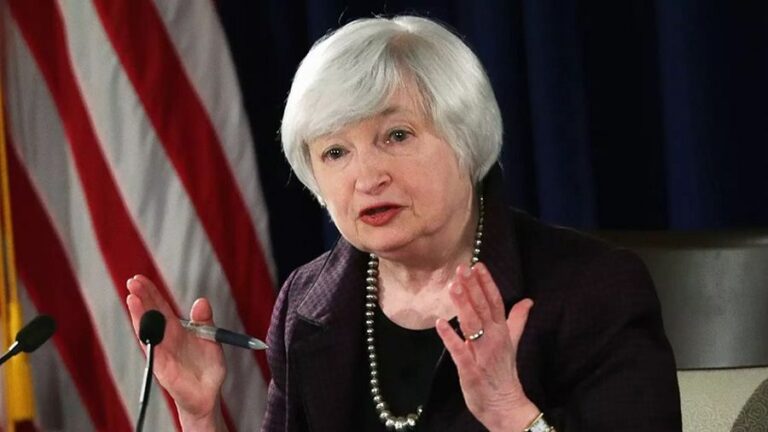Is Forced Isolation of the Unvaccinated Really the Left’s Answer to the Pandemic?
How things have changed since Donald Trump came and went as US president. Until then, I was able to identify myself as firmly on the progressive left. Now – with the Covid pandemic only reinforcing the post-Trump trauma – I find myself in some weird no-man’s land, trapped and squeezed between two ballooning ideological tribes that sound too much alike on too many questions.
That was driven home by a new interview with Noam Chomsky – someone whose influence on me is such that it has shaped the evolution of my intellectual journey over the past two decades. Like many on the left, I am in Chomsky’s eternal debt for helping to liberate me from decades of mind manipulation that is the fate of anyone who passes through our schools and universities, watches the billionaire-owned media (or in my case, once worked in it) or pursues a professional career.
But still, there is only so far a debt even of this magnitude justifies indulging assumptions of the kind expressed in the Chomsky interview.
In it, the famous linguist and political thinker argues that those who are not vaccinated against Covid should be socially shunned, required to isolate and – in the final assault on a social solidarity he cites as the justification for his argument – even potentially put in danger of destitution. They have only themselves to blame for their plight, he concludes.
Yes, Chomsky really did say that – though doubtless many on the left will rush to parse his words to suggest there was a “nuance” in the interview I missed. And worse, judging by the comments, lots of people on the left – and right – seem to agree with him. There certainly doesn’t seem to be much nuance in their views.
You can watch the relevant section of the interview, and an earlier one, here:
Waning immunity
Let’s analyse the analogy Chomsky offers: Are people who do not take the vaccine really behaving as if they think there should be no traffic laws and we should all be able to drive as we please?
Strangely, Chomsky appears to be including in this “lawless” group of unvaccinated people those who have actually had Covid and who, the medical research suggests, now have better natural immunity to the disease than the immunity induced by medical assistance. (Note that new research suggests that those taking the Janssen vaccine have only 3% immunity after five months, while Pfizer’s is about 50%.)
It is hard to ascribe this lacuna in Chomsky’s argument to some kind of oversight. Given that he is normally such a careful and precise thinker, we must assume that Chomsky wants all unvaccinated people – whatever their immunity status – to be forced into isolation, even if that puts them at risk of destitution.
In Chomsky’s telling, it seems, the only basis on which to determine who is “safe” to the rest of society is those who have been vaccinated. That is also what Big Pharma and the billionaire-owned media insist on too. But they have a better excuse: after all, they profit from our exclusive reliance on vaccines.
Tyranny of the majority
Back to Chomsky’s analogy. The problem with it is that it obscures far more than it illuminates.
His point is that, if people were allowed to make up their own rules of the road, to act on their own selfish impulses and ideas of advantage, there would be carnage. Which is why we have those traffic laws.
Let’s set aside a debate about whether carnage would actually be the outcome, and just assume it would. How does that help us understand the phenomenon of people being hesitant or resistant to getting vaccinated and clarify how we should treat them?
In democratic societies, the social contract is based on a compromise – between individual freedoms, on one side, and the wider needs of the social group for security, on the other. There is often a tension between those two things. In healthy societies, a resolution is reached after weighing those conflicting needs and deciding, ideally through a general consensus, which should take priority in each case under consideration.
In western societies we have, for good or bad, traditionally given a great deal of autonomy to the individual. So much so that in a trend that created our current neoliberal form of capitalism, corporations have been accorded the protected status of individuals – as Chomsky has helpfully explained – allowing them to get away with corporate murder. They poison our water and air, kill off the insects that support life, destroy trees that are the lungs of the planet, and so on.
What most people expect of the social contract is that it offers a balance between the tendency towards authoritarianism of the state and a tyrannical majority, on one side, and the rights of the minority, on the other.
There is an essentially selfish basis to this for each of us: today I am in the majority, but tomorrow I may find myself in the minority. The only people who generally favour tyrannical majorities are those who lack the ability to imagine the day when they may no longer belong in the majority.
Balance sheet
So how does all this apply to Covid and the vaccines?
The issue with mandating people to take the current vaccines – or, as Chomsky does, insisting that only the vaccinated be allowed to engage in the most basic acts of life, like going to buy food – is that it ignores the principle of proportionality. It sweeps aside the idea of compromise at the heart of the social compact.
Proportionality is important in democracies – both as a principle for the social group and as a practical measure by which individuals judge how best to act. We use it as a yardstick all the time.
If someone shouts at me in the street and I punch them in the face in response, most people would agree that my act was disproportionate. If the police arrest me for writing a rude tweet to a celebrity, most people (though possibly fewer than a year or two ago) would think that is also disproportionate.
In each case, we are making a judgment about what constitutes socially acceptable behaviour, and where the dividing lines lie between classifying things as normal, inappropriate and downright unlawful. In reaching that conclusion we must also weigh what harm is being done to the individual and to the group by treating something that was once acceptable as unacceptable, or something that was formerly frowned upon as now illegal.
There is a balance sheet in every one these judgments, even if we rarely run through the pros and cons consciously.
Thought experiment
So how should we balance the right to bodily autonomy of the individual in refusing the vaccine and the desire of society to protect itself from the Covid pandemic?
As with all other cases, there is no abstract principle that can be adduced – plucked from the ethers – to reach a decision. In difficult cases, the balance sheet has to be examined particularly carefully and appeals to emotion or hysteria avoided.
How this bears out in the case of Covid can be better underscored if we do a small thought experiment. Imagine for a brief moment that we are not facing Covid, but instead a global pandemic of Ebola.
Imagine that Ebola is as transmissible as Covid and has become as endemic in our communities. Ebola has an average death rate of about 50 per cent – one in two people who catch it are likely to die from it.
In those circumstances, how would we weigh forcing vaccine mandates on the general population? How would we treat those who resisted vaccination? And would we be okay with forcing them into isolation, even if that put them in danger of destitution?
No profiteers
I suspect most people would feel far more comfortable in this scenario forcing people to be vaccinated and requiring parents to vaccinate their children. But maybe more to the point, the need to force people to vaccinate – outside of a few Jehovah’s Witnesses – would surely barely arise. The problem wouldn’t be vaccination hesitancy; it would be the stampede by members of the public to be the first vaccinated.
Faced with an Ebola pandemic, nobody sane would have doubts about whether the virus was dangerous, let alone whether it existed. The dangers would be so great and so obvious, there would be no room for doubt.
And for that reason, we wouldn’t be complacently letting a few pharmaceutical companies exploit the pandemic for profit. Our whole economies would be put on a war footing to find better vaccines and a wider array of treatments. Shunning profiteers from the pandemic would surely take precedence over shunning those unfortunates who were not vaccinated.
In other words, the situation would be entirely different from the one we have now with Covid.
Breaking point
My imaginary scenario, of course, doesn’t settle the matter of what we do about Covid. But it does highlight that in the case of our real Covid pandemic – unlike my imaginary Ebola pandemic – there are issues to be weighed about the right of the individual to autonomy and the right of society to security. In the case of Covid, the answers aren’t anywhere near as clearcut as Chomsky is claiming. We aren’t facing Ebola, or anything even vaguely like it.
Let’s revisit the traffic analogy.
Even with traffic laws being universally observed, we still have substantial numbers of drivers and pedestrians killed and badly injured each year on our roads. Rightly or wrongly, few people call for the banning of cars on those grounds. We have weighed our freedom and convenience against road deaths, and decided that the freedom of the open road is more important to us.
In a post-vaccine world especially, we are not facing the road carnage caused by an Ebola virus. The danger to those who are vulnerable – at least in the hyper-selfish “developed” world – has been gradually diminishing from a mix of vaccines, boosters and better treatments. The dangers in much of the west, even for the vulnerable, are gradually starting to look closer to those from flu.
The biggest problem at this stage appears to be that we have Covid and flu, which may push our already strained and underfunded health services closer to breaking point this winter. Our health services are struggling to adapt to the new reality primarily because of long-standing political failures to prioritise public health care over private profit.
Who is a hazard?
That some people are still dying of Covid is on one side of the ledger, just as it is when considering deaths from flu or deaths from cars. But for decades almost no one demanded vaccine mandates for flu, or the enforced isolation of people who refused to take a flu shot. And – again for good or bad – few people demand that people with cars should be fined or socially isolated.
And if they did, most of us would rightly think that there was a debate to be had first, a careful weighing of society’s priorities, rather than instant denunciation and isolation of those not vaccinated against flu or those who continued to own cars.
In the case of Covid, there are additional factors to be weighed – on the other side of the balance sheet – before agreeing that an individual’s autonomy must be violated by forcibly vaccinating them or imposing draconian punishments on them for refusing:
- The vast majority of those who need or wish to be protected from the virus, or the threat posed by the unvaccinated, can be through vaccination.
- It is not only the unvaccinated who pose a hazard to vulnerable fellow citizens. So do the vaccinated, because vaccine protection wanes rapidly, meaning the current vaccines will have a limited effect on transmission unless we forcibly vaccinate everyone every few months.
- The vaccines are a new technology whose short-term effects, if disappointing in terms of immunity, appear to be relatively safe. But the longer term effects cannot yet be fully gauged, and we should be cautious in ignoring or discounting any individual’s concerns about being required to take these new vaccines – or making their children take them
People may be risking their own health by refusing the vaccine, but – for good historical reasons – we should be extremely wary of establishing a precedent that they may be forced to do something against their will because others deem it in their best interests.
You may agree that all, some or none of these factors are relevant. But neither you nor I get to decide on our own. They need to be given a proper airing and to be weighed. The problem is we live in profit-driven societies, engineered to uphold the power of elites, that are incapable of airing such matters fairly or allowing us to weigh them dispassionately. Which is precisely the reason for the social breakdown that so concerns Chomsky – and me.
Divisive rhetoric
There is a final way in which Chomsky’s traffic analogy may be helpful, if not in the way he intended.
For decades our media have preferred to focus on the problems caused by drunk drivers, or speeding motorists, or even car pollution. But these issues, however significant they are in our daily lives, are overshadowed by the far more terrifying reality that our car and oil-dependent economies are taking a suicidal toll on our species by destroying the climate.
Fixating on one can be a way to avoid thinking about the other.
Something similar seems to be happening with Covid. We fixate on vaccines and “anti-vaxxers”, on mandates and passports – on blaming each other – rather than the reality that our societies and our social contracts were long ago hollowed out by corporate interests that captured the state.
If there is hesitancy over the vaccines it is because a portion of society is not afraid enough of the virus either to overcome their fear of a pharmaceutical industry that long ago put profits ahead of people or to set aside their doubts about the capture of our regulatory authorities by those same corporations.
Calling for the unvaccinated to be forcibly isolated makes for an easy and emotionally satisfying soundbite. If Tucker Carlson or Trump said it, most of the left would immediately understand it as unhelpful, divisive rhetoric. It doesn’t stop being that just because Chomsky is the one saying it.







